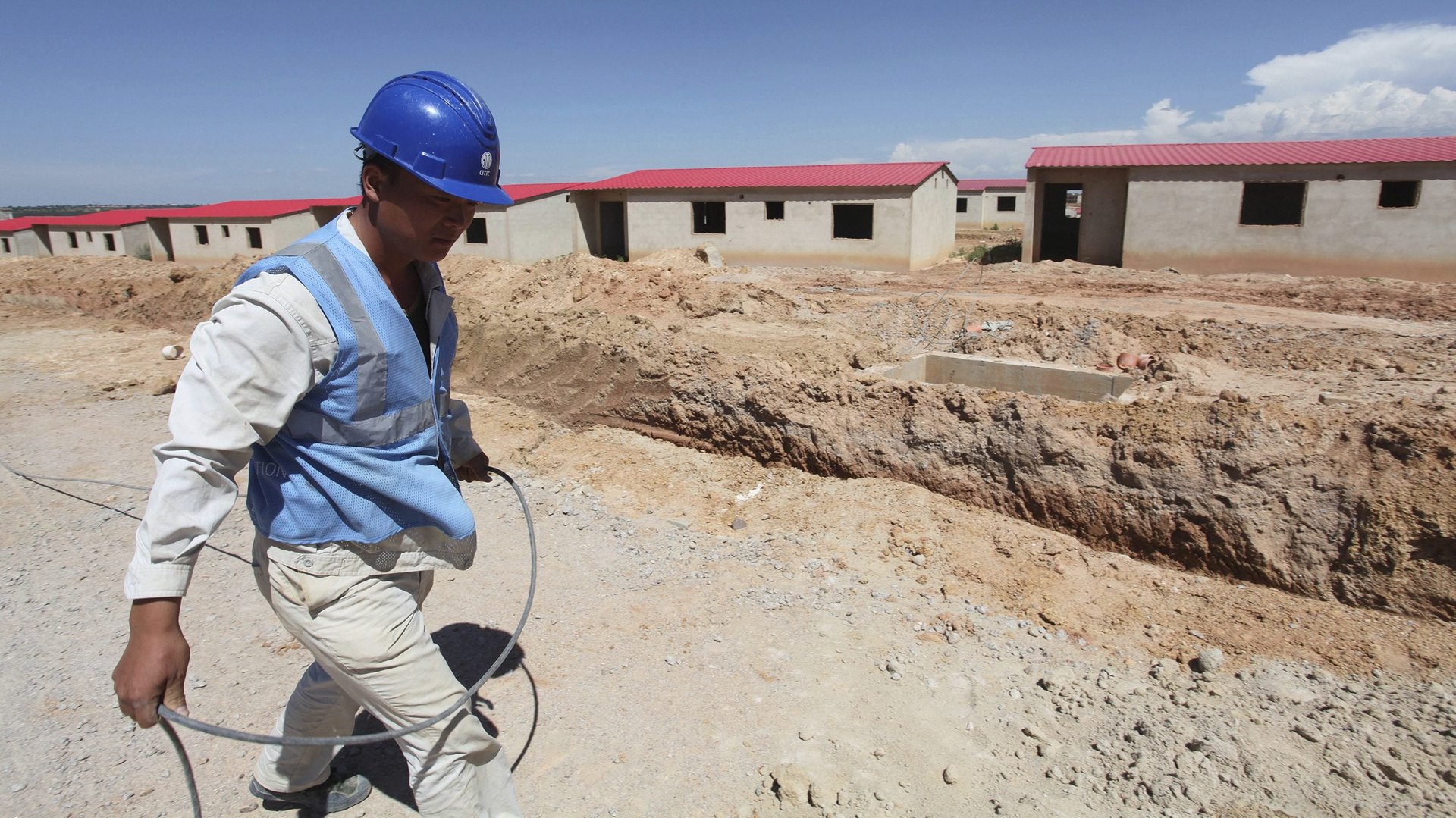African economies are being burdened with commodities-linked debt even as prices tumble
Last month World Bank’s president David Malpass expressed concern about the amount of debt some of Africa’s economies were piling on. In particular, he worried about the lack of transparency in some of the loan deals being struck with China.


Last month World Bank’s president David Malpass expressed concern about the amount of debt some of Africa’s economies were piling on. In particular, he worried about the lack of transparency in some of the loan deals being struck with China.
Africa’s debt load has soared some 150% to over $583 billion in 2018 from $236 billion 10 years earlier, according to World Bank data.
A sizable share of that debt in Africa are resource-backed loans which are inked directly between the resource producer and the lender—usually China in recent years. A resource-backed loan is defined as a borrowing mechanism by which a country gets finance in exchange for, or collateralized by, future streams of income from its natural resources, such as oil or minerals.
A recent report from the Natural Resource Governance Institute (NRGI) examined 52 resource-backed loans made between 2004 and 2018, with a total value of more than $164 billion—30 of them, with a combined value of $65.8 billion, were made to Sub-Saharan African countries.
More than half the total amount of loans to Sub-Saharan African countries examined in the report came from China Development Bank and China Eximbank to Angola ($21.4 billion); Ghana ($3 billion); Niger ($1 billion) and Sudan ($3 billion). The remainder was mostly provided by international commodity traders to oil producers Chad ($2 billion), Congo Brazzaville ($5.1 billion) and South Sudan ($1.3 billion).
“African leaders have often taken out these loans to help with their own short-term political ambitions, but their countries have ended up severely indebted and with the risk of losing collateral worth more than the value of the loan itself,” says Evelyne Tsague, an NRGI Africa co-director.
Indeed, resource-backed loans need not be a bad thing. Most of the deals are linked to specific infrastructure projects for example, so if executed as laid out on paper they could help shorten the path to closing the African infrastructure gap estimated to be around $90 billion a year.
But it is the lack of transparency with these bilateral deals that concerns bodies like NRGI and the World Bank, particularly with the oil producers. “These deals, sometimes labeled as oil advances, often resemble pay-day loans,” says David Mihalyi, co-author of the report and senior economic analyst with NRGI. “They have short maturities, high interest rates and fees, and no commitments on how the money will be used.”
And if anymore evidence of the riskiness of bad deals was needed, the imminent global economic crisis prompted by the coronavirus pandemic is clear. The downturn in Chinese demand and subsequent face-off between Saudi Arabia and Russia in the oil markets has seen prices drop to levels that will disrupt the budget plans of major oil producers in Africa. Nigeria’s oil-dependent economy for example has a 2020 budget based on revenue from with oil priced at $57. Prices have dropped to between $33 to $35.
These price drops could have even more significant impact for countries whose resource-backed loans were struck at the higher prices.
Sign up to the Quartz Africa Weekly Brief here for news and analysis on African business, tech and innovation in your inbox